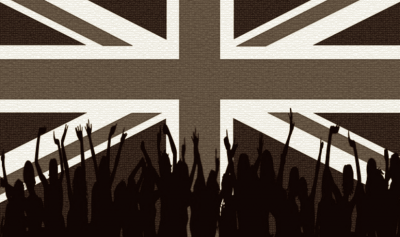UK Election – Victory for English Nationalism Under the Banner of Brexit

Overnight the electoral map of the UK has changed significantly. Scotland is once again bathed in a sea of yellow, as England has been shrouded in blue. With the Scottish National Party obtaining 45% of the vote north of the border, and the Conservatives only 25% it is clear not only is there no mandate for Brexit in Scotland, but as leader Nicola Sturgeon has said, there is now very much a mandate for holding a second referendum on Scottish Independence.
England, on the other hand has put its support resoundingly behind Prime Minister Boris Johnson and his mantra of ‘Get Brexit Done’. With a remarkable 364 seats, as opposed to Labour’s 203 – its worst performance since 1935 – he proclaimed that a ‘political earthquake’ had occurred and that he would end all the squabbling of the last few years he would take the country out of the EU ‘no ifs and no buts’. This was a message that appealed to the majority, clearly sickened by the deadlock of Brexit. Despite the radical spending programme proposed by the Labour party, this election ended up being, as it was promoted, all about Brexit.
And this takes us to the broader context of what is in fact happening in the UK. Indeed, it’s important to see this election in the wider European political landscape. This was not just a Conservative party win, but a victory for nationalism. Not just Scottish Nationalism, but English Nationalism under the banner of Brexit, and Welsh and Irish Nationalism. For the first time ever, Northern Ireland elected more Nationalist MPs than Unionist, in what was also, like Scotland, an anti-Brexit vote, which will spur on more talk of Irish reunification. Welsh Nationalist party Plaid Cymru also held on to its four seats in Wales.
So while it may be portrayed as a landslide victory for the Conservatives, this election more than ever has shown up the cracks forming in the Union. Scottish Nationalism appears to be on an irreversible path to independence, with the question now being not if there will be a referendum on independence, but when. The strong Remain vote up north has only boosted the case for leaving the UK, as Scotland places more importance on being part of Europe, than being part of Britain. England, for its part, has clearly put more emphasis on being out of Europe, than it has on retaining the Union.
Indeed, looking at the western world in general, the popularity of nationalist and right-wing parties is undisputedly on the rise. The AfD in Germany, the National Front in France or Vox in Spain – these parties are all gaining popularity, just as Trump has in the US. And together with Johnson’s Conservatism, they all have something in common, that ‘populist’ appeal that really gets its message across. For regardless of their party leaders’ sins (Boris Johnson has been repeatedly been lambasted as a liar, racist, and misogynist), they have not been enough to deter voters, for whom clearly the nation state is what matters most.
There’s no doubt that Brexit has been a shock for the EU. Arguably Britain had always been a hesitant member, refusing to join the Euro, or join the Schengen zone (which allows borderless travel between states); it never quite developed that European mindset. But the Brexit vote took EU politicians by surprise, sending shockwaves across a Union already under pressure from Eurosceptic parties. They will no doubt breathe a sigh of relief in Brussels that the Brexit stalemate will now be broken with Boris Johnson’s parliamentary majority – finally a deal can be passed – but the reality that one of their major players finally leaving must be making them nervous.
Boris Johnson put faith in the people, and the gamble paid off. But whether he appreciates the real seismic consequences of this ‘political earthquake’ is another question. For cracks are not only emerging between Britain and Europe, but across the United Kingdom itself. It’s the price to be paid for Brexit.
*
Note to readers: please click the share buttons above or below. Forward this article to your email lists. Crosspost on your blog site, internet forums. etc.
This article was originally published on InfoBrics.
Johanna Ross is a journalist based in Edinburgh, Scotland.
Featured image is from TruePublica

